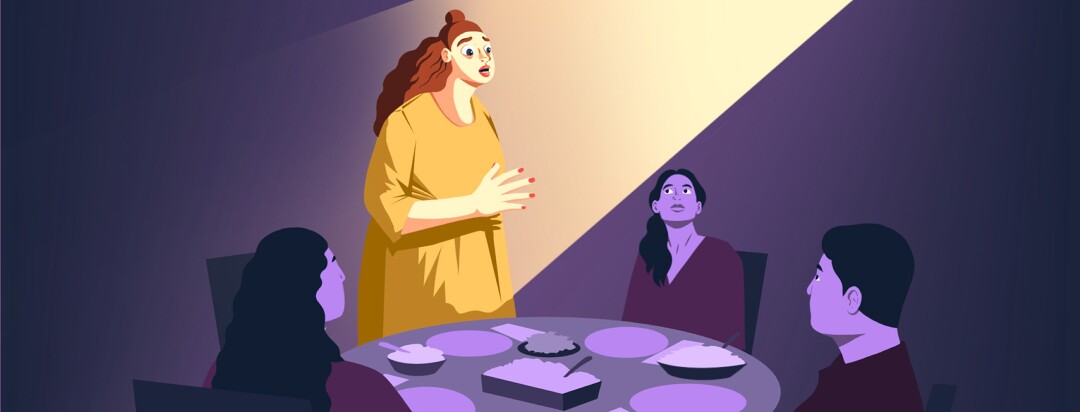Why Is Diet So Hard to Talk About With IBD?
Other than the mention of a "cure," there is only one topic that causes more controversy when it comes to living with inflammatory bowel disease: diet.
Whether it's arguing over whether a poor diet is a possible trigger for IBD, if specific diets work, or if what we eat has anything to do with our condition whatsoever, we all seem to have an opinion. Despite more research being done on diet and IBD (for example, one study last year suggested the Mediterranean diet may be helpful), we still don't know that much about it and there isn't as much support as we may need.1
Let's take a look at why it's still so hard to discuss diet, food, and Crohn's and colitis.
There's a lack of support around diet
Most of us simply don't have the support we need to truly understand how diet may impact our IBD and personal well-being. Ideally, everyone with IBD needs access to a dietitian who can help us figure out our personal triggers and a diet that works for us. But many people aren't able to access a specialist dietitian and it's not a big part of our hospital appointments.
This leads many of us to take to the internet to try and figure things out on our own. This can lead to misconceptions and misunderstandings which can make talking about diet more difficult. It may also lead patients to simply dismiss diet as having any role in their condition (which may actually be the case for some individuals)
Our doctors don't focus on diet or nutrition with Crohn's or UC
Many of us have regular checkups with our doctors. We are asked about our pain levels, bowel movement frequency, and even their consistency! But there is rarely time to discuss other areas that Crohn's or colitis may impact us. One of these is mental health. I've talked before about how why I feel every IBD patient should be offered counseling and mental health support.
We are also not asked if we have any challenges with diet and this is something that isn't discussed at point of diagnosis either. This is because there's no "one diet fits all", but I do think having a conversation about diet and explaining how it may be useful to keep a food diary or try to pinpoint certain triggers would be useful. Making diet part of the conversation and understanding how it may work alongside our medication on other changes would make it easier to talk about.
It can make us feel guilty about our Crohn's or colitis
Over many years of living with IBD, I've seen many headlines that link certain types of diet to your chances of developing IBD. The first response I always feel in relation to this is pure guilt. Perhaps if I'd eaten fewer preservatives or more whole grains, I wouldn't be living with this incurable condition?
Talking about diet can often feel emotionally charged – because with it can make us feel as if diet changes alone are responsible for our condition or flare-up. We already likely feel guilty about so many things and this can feel as if it's something else to stress over.
It's important when talking about diet and IBD that studies themselves do not prove a definite cause of your condition. A lot of the studies around diets that improve Crohn's or ulcerative colitis are diets that can feel difficult to follow, so we may feel guilty if we don't stick to them.
Everyone has a different opinion
Finally, another reason why we don't talk about diet is we all have different opinions. That's because we all have different bodies! But this can make discussing diet difficult. I personally find a gluten-free diet helps my symptoms, but I've had fellow patients tell me this can't be true or I can't have IBD.
This can also lead to comparing your diet and condition to others and feeling frustrated if a diet doesn't work for you. Sometimes it can be hard to understand that we all respond differently.
This is really the crux of why diet is so hard to discuss with IBD: we all have the same condition but everybody's body is different, so we need to accept diet can never be a universal experience. Instead, focusing on our own bodies and condition is what is needed to learn more about diet.

Join the conversation